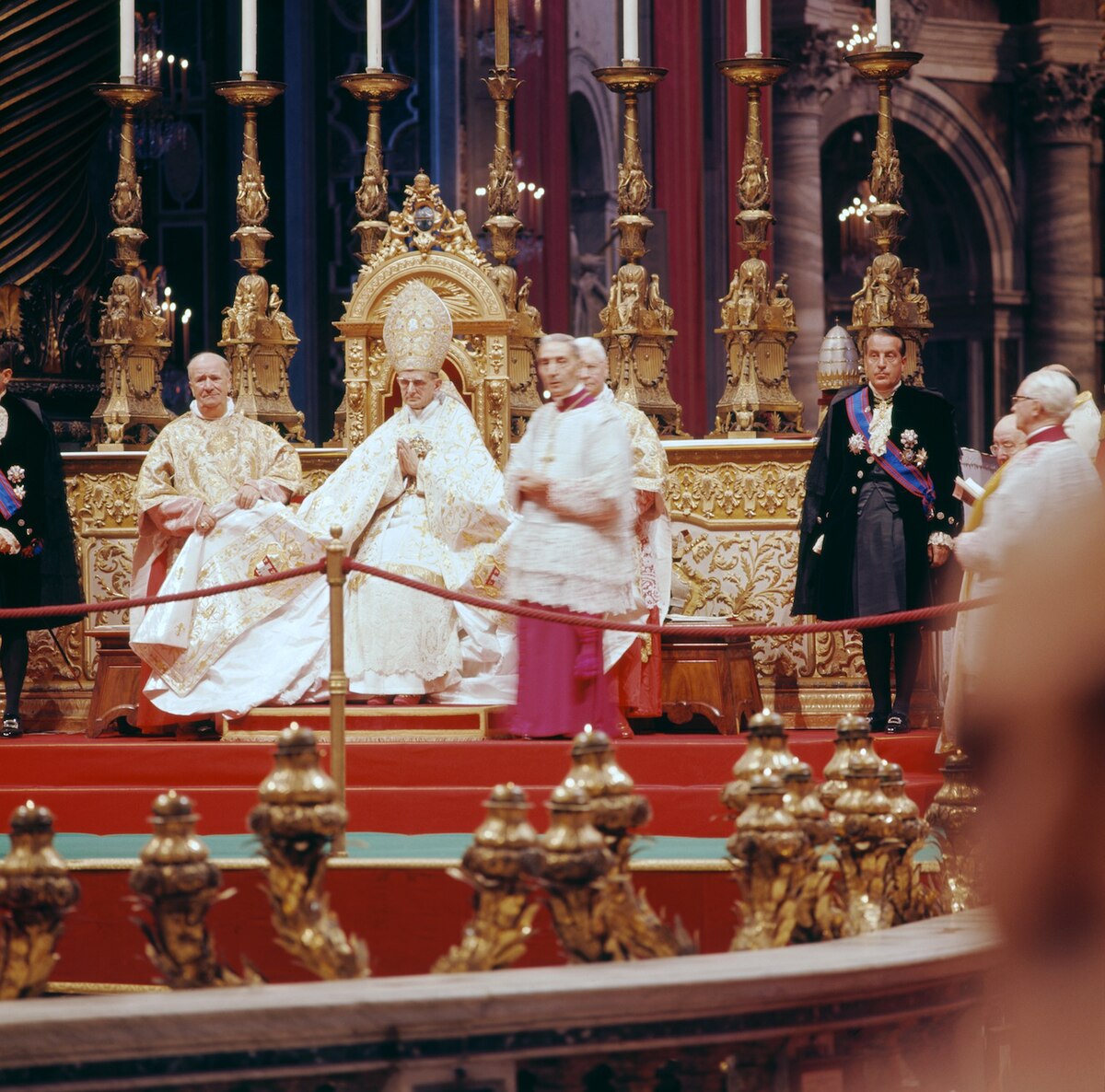
Second Vatican Council
St. Peter's Basilica, Piazza SThe Second Ecumenical Council of the Vatican, commonly known as the Second Vatican Council, or Vatican II, was the 21st ecumenical council of the Roman Catholic Church. The council met in St. Peter's Basilica in Rome for four periods (or sessions), each lasting between 8 and 12 weeks, in the autumn of each of the four years 1962 to 1965. Preparation for the council took three years, from the summer of 1959 to the autumn of 1962. The council was opened on 11 October 1962 by John XXIII (pope during the preparation and the first session), and was closed on 8 December 1965 by Paul VI (pope during the last three sessions, after the death of John XXIII on 3 June 1963).
Pope John XXIII called the council because he felt the Church needed “updating” (in Italian: aggiornamento). In order to connect with 20th-century people in an increasingly secularized world, some of the Church's practices needed to be improved, and its teaching needed to be presented in a way that would appear relevant and understandable to them. Many Council participants were sympathetic to this, while others saw little need for change and resisted efforts in that direction. But support for aggiornamento won out over resistance to change, and as a result the sixteen magisterial documents produced by the council proposed significant developments in doctrine and practice: an extensive reform of the liturgy, a renewed theology of the Church, of revelation and of the laity, a new approach to relations between the Church and the world, to ecumenism, to non-Christian religions to religious freedom and more importantly, on the eastern Churches.
